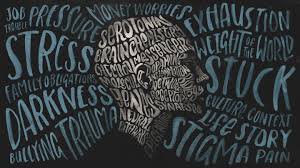Depression

Depression is caused by a complex interplay of genetic, biological, environmental, and psychological factors. It can affect anyone, regardless of age, gender, or background. Early detection and intervention are crucial in managing symptoms and improving quality of life. Understanding depression as a medical condition, rather than a sign of personal weakness, is essential in addressing it effectively and compassionately.
Depression can lead to suicidal ideation, also known as, thoughts of suicide. According to data from the World Health Organization (WHO) and the Centers for Disease Control and Prevention (CDC), suicide remains a leading cause of death worldwide.
- Persistent Sadness or Low Mood: Feeling sad, empty, or hopeless most of the day, nearly every day.
- Loss of Interest or Pleasure: A marked decrease in interest or pleasure in activities that were once enjoyed, including hobbies and social interactions.
- Changes in Appetite or Weight: Significant weight loss or gain, or changes in appetite.
- Sleep Disturbances: Insomnia, early-morning awakening, or excessive sleeping.
- Fatigue or Low Energy: Feeling tired and drained of energy, even after adequate rest.
- Difficulty Concentrating: Trouble focusing, making decisions, or remembering information.
- Feelings of Worthlessness or Guilt: Intense feelings of worthlessness, guilt, or self-blame.
- Physical Symptoms: Aches, pains, headaches, or digestive problems that do not have a clear physical cause.
- Restlessness or Slowed Movements: Feeling agitated, restless, or having slowed speech and movements.
- Thoughts of Death or Suicide: Recurrent thoughts of death, suicidal ideation, or suicide attempts.

Depression is a serious but treatable condition. You may think it looks like someone who is always sad, withdrawn or crying but it usually looks like a regular, every day person who is masking throughout the day.
If you or someone you know is experiencing symptoms of depression, it is important to seek help from a healthcare provider. Early intervention and a comprehensive treatment plan can lead to significant improvements in quality of life and overall well-being. Remember, you are not alone, and help is available.
